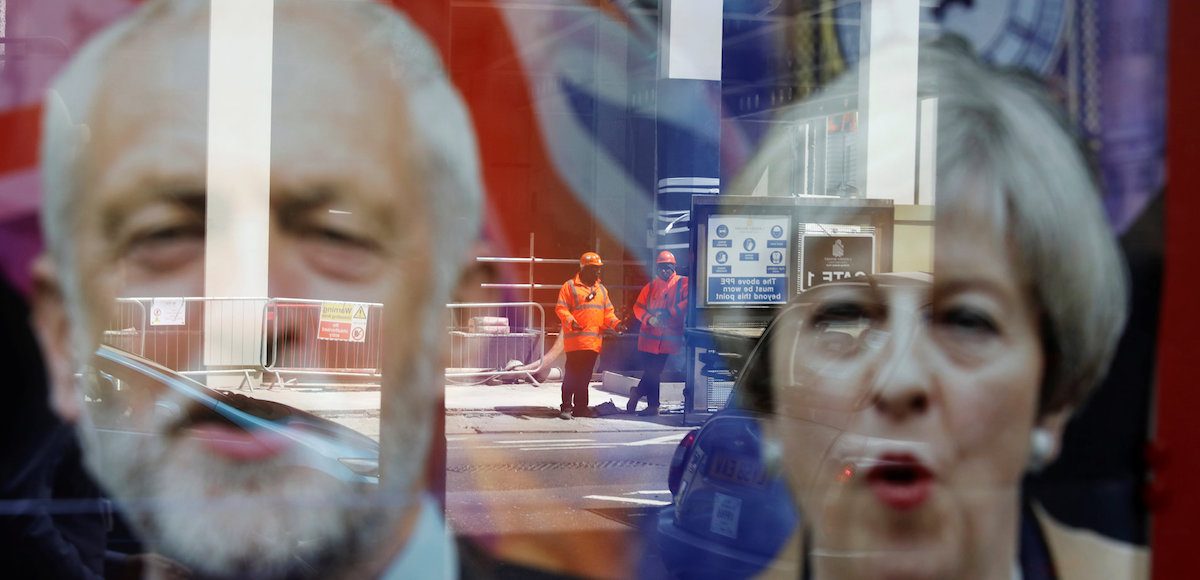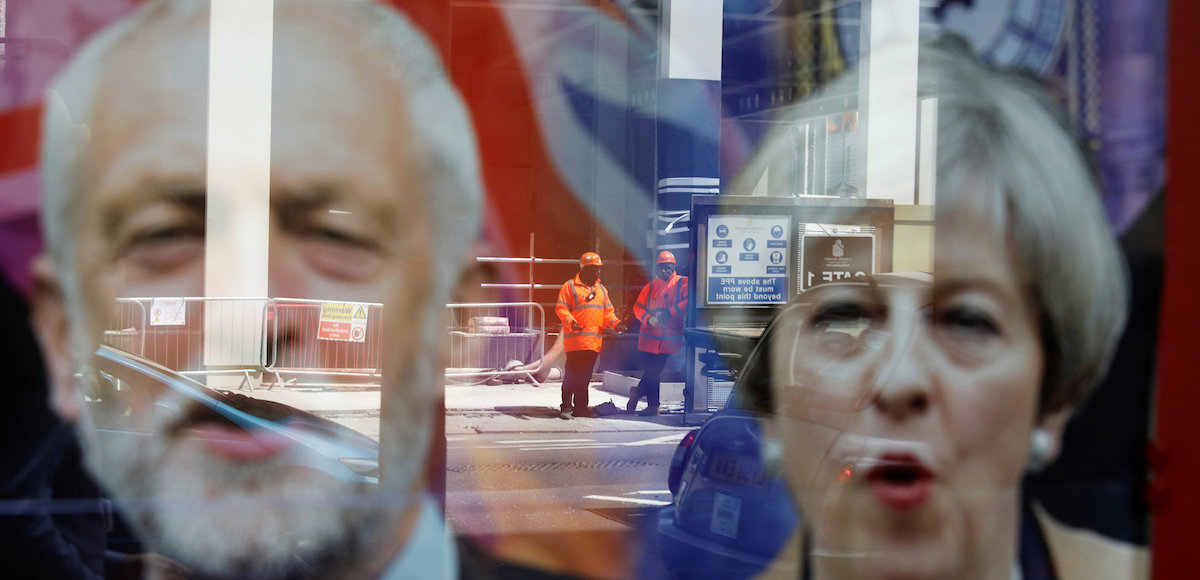

Workers in protective equipment are reflected in the window of a betting shop with a display inviting customers to place bets on tbe result of the general election with images of Britain’s Prime Minister Theresa May and opposition Labour Party leader Jeremy Corbyn, in London, June 7, 2017. (Photo: Reuters)
Jeremy Corbyn’s Labour party made big gains over Theresa May and Conservative Tories in the UK elections, ensuring a new resident at Number 10 Downing Street. While Conservatives won the most seats and votes, it will not be enough for an outright majority.
It is expected that the Tories will form a coalition government with the DUP, which won 9 seats (thus far). Only a strong showing in Scotland kept the conservatives from a total bloodbath, though there is little Prime Minister Theresa May can do to put a spin on the fall.
Conservatives even lost Canterbury, which they’d held since World War I. The incumbent Sir Julian Brazier occupied the seat for 30 years, since 1987.
In her “victory” speech, Prime Minister May, who held on to Maidenhead with 45.4% of the vote, all but conceded there’s going to be a “hung Parliament” and vowed “stability” if it turns out the Conservative Party wins the most seats and votes.
Assuming she does not survive the political fallout from within and outside the party, Mrs. May will be the shortest serving prime minister Britain has had since 1922.
Nick Clegg, the former leader of the Liberal Democratic Party and the Deputy Prime Minister in the coalition government with Conservatives from May 2010-May 2015 has been defeated in a pickup for the Labour party. Labour picked up seats against Conservatives in Rutherglend, Hamilton West and Battersea, the latter going for the Conservative Party in 2015 by 8,000 votes.
It went for Labour by 3,000.
Alex Salmond, the former head of the SNP and the leader of Scottish Independence movement, was also defeated. The seat was a much-needed pickup for the Tories.
The Exit Polls forecasted the conservative Tories to hold onto 314 seats, which is 12 short of a majority. Technically, or officially, a single party needs 326 seats to gain an outright majority in the 650-member House of Commons. However, the actual practical number is around 321 to 323 depending on how the Sinn Fein, the Irish nationalist party fairs.
The Speaker of the House of Commons does not vote and members from Sinn Fein, which won four seats in the last general election in 2015, do not show at Westminster. Labour was projected by the exit polls to win 266, Liberal Democrats 14; Scottish National Party (SNP) 34; and, UKIP 0.
One of the stories of the night was the split in the vote of the UKIP, which roughly went equally to the Tories and Labour. That is a working class party with nationalist tones and were assumed to be more pro-conservative party. However, unlike the preconceived notions of the media, they are largely not one-issue voters (re: Muslim immigration).
The momentum in the campaign changed after two Islamist terror attacks in a 12-day period killed 29 people and injured hundreds more. With the attacks came a dive in the polls amid deeper scrutiny of the six-year tenure Prime Minister May served as Home Secretary, Britain’s top law enforcement official.
The BBC is projecting 318 seats for Conservatives, 8 short of an outright majority. Labour is projected at 267 and Liberal Democrats 11. People’s Pundit Daily’s number-crunching put the likely conservative number at around 316, which could change shorty. Stay tuned.





